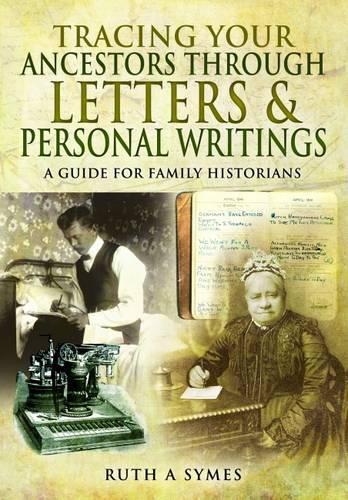
Tracing Your Ancestors Through Letters and Personal Writings: A Guide for Family Historians
(Hardback)
Publishing Details
Tracing Your Ancestors Through Letters and Personal Writings: A Guide for Family Historians
By (Author) Ruth Alexandra Symes
Pen & Sword Books Ltd
Pen & Sword History
14th August 2017
United Kingdom
Classifications
General
Non Fiction
Genealogy, heraldry, names and honours
929.1072041
Physical Properties
Hardback
256
Width 156mm, Height 234mm
Description
Could your ancestors write their own names or did they mark official documents with a cross Why did great-grandfather write so cryptically on a postcard home during the First World War Why did great-grandmother copy all the letters she wrote into letter-books How unusual was it that great-uncle sat down and wrote a poem, or a memoir Researching Family History Through Ancestors' Personal Writings looks at the kinds of (mainly unpublished) writing that could turn up amongst family papers from the Victorian period onwards - a time during which writing became crucial for holding families together and managing their collective affairs. With industrialisation, improved education, and far more geographical mobility, British people of all classes were writing for new purposes, with new implements, in new styles, using new modes of expression and new methods of communication (e.g. telegrams and postcards). Our ancestors had an itch for scribbling from the most basic marks (initials, signatures and graffiti on objects as varied as trees, rafters and window ledges), through more emotionally-charged kinds of writing such as letters and diaries, to more creative works such as poetry and even fiction. This book shows family historians how to get the most out of documents written by their ancestors and, therefore, how better to understand the people behind the words.
Reviews
"The great strength of this book is the suggestions it offers for further research, many of which you won't have thought about before. At the end of each chapter is a list of questions to pose when looking at particular writings for your forebears. For example, why were they created and who were they for The book is also full of useful tips such as making comparisons of your ancestors' signatures with people of different ages and genders, and with previous and subsequent generations; this many help to ascertain changes in their lives such as illness and an increase in education. Also, if you ever have to clear out an elderly relative's house, never send their books to a charity shop without looking through them first. The volumes might include handwritten annotations that could tell you more about their thoughts, hopes and dreams in their life. The book also highlights an excellent range of online and offline sources to follow up, and it's well illustrated with examples of personal writings; it's an absorbing and thought-provoking read."-- "Who Do You Think You Are" (2/1/2017 12:00:00 AM)
It's an absorbing and well-illustrated read, and will be of interest to you whether you're trying to track down your ancestor's written record, or just want to read about our predecessors' attitude towards the written word.-- "Your Family History" (7/1/2017 12:00:00 AM)
Author Bio
After a career in academia and editing, freelance writer and historian Ruth A. Symes now writes for several genealogical magazines including Family Tree Magazine and the BBC's Who Do You Think You Are magazine. She lives in Manchester with her husband and young daughter. This is her fourth family history book.
